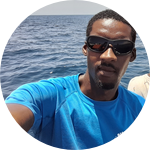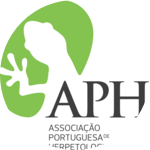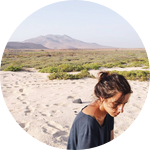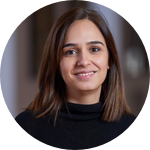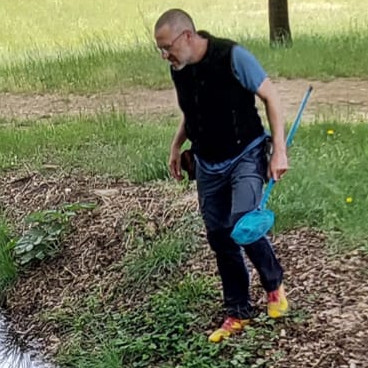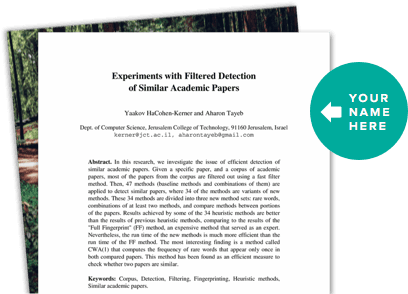About This Project
Plastic materials can leak a variety of chemical compounds that may infiltrate the permeable sea turtle eggs, exposing developing embryos to potentially harmful substances. Our proposal aims to trace the pathways from plastic contaminants (e.g., flame retardants) to the turtle nesting areas of Cabo Verde, potentially reaching the eggs and persisting in the eggshells. This proposal will contribute to conservation measures to safeguard the overall health of turtle populations.
Ask the Scientists
Join The DiscussionWhat is the context of this research?
Plastic pollution poses a global threat to ecosystems, particularly impacting sea turtle nesting grounds. Over half of the priority pollutants listed as toxic by the European Union are associated with these plastic materials [1]. The persistence of these contaminants leads to their widespread distribution in the environment [2]. They have polluted urban and remote beaches worldwide [3], with turtle eggs being particularly vulnerable due to their permeability during the 50-day incubation period in the sand [4, 5]. Cabo Verde hosts the third-largest loggerhead turtle population globally (classified as Endangered by IUCN), serving as a critical focus for understanding early signs of contamination in these protected species.
What is the significance of this project?
Building upon our previous study, which demonstrated the release of PBDEs from plastic-exposed sand [6], we aim to trace the pathways from plastic contaminants to the turtle nesting areas, potentially reaching the eggs and persisting in the eggshells. This proposal will shed light on the extent of contamination, elucidate potential pathways for chemical ingress, and contribute to targeted conservation measures to safeguard the reproductive success and overall health of turtle populations in Cabo Verde.
What are the goals of the project?
The objective is to assess the potential chemical contamination from plastics in loggerhead turtle eggshells in Cabo Verde, specifically focusing on flame retardants, bisphenols, UV filters, and phthalates. We plan to collect approximately 40 eggshell samples in beaches of the islands of Sal, Boavista, Maio, São Vicente, and Santa Luzia. Leveraging previous beach mapping and litter quantification efforts between 2021 and 2023 [3], we aim to relate plastic pollution and disturbance intensity to eggshell contamination. Moreover, we can easily spot empty eggshells on beaches when baby turtles hatch and head to the sea, leaving the shells behind. Therefore, no eggs or embryos will be harmed in this project.
Budget
The project is part of the PhD project (Fundação para a Ciência e Tecnologia, https://doi.org/10.54499/2020.04775.BD) of Diana Sousa Guedes. The project do not have any additional funding, and monthly allowance do not cover fieldwork and laboratory expenses.
For fieldwork in Cabo Verde aiming to collect eggshell samples, one person of our team will flight between Portugal and Cabo Verde, and between islands (Boavista - Santiago - São Vicente). We will need to rent a car for the fieldwork (approximately 50$/day). We have logistical support of two Cape-Verdean NGOs: BIOS.CV, located on Boa Vista Island, and Biosfera, located on São Vicente Island.
For laboratory work and chemical analysis of eggshells, we will need to acquire internal standards and organic solvents (approximately 50$/sample) and a capillary column. We have laboratory support from the Faculty of Pharmacy of the University of Porto, under the supervision of Dra Sara Cunha.
Endorsed by
 Project Timeline
Project Timeline
We plan to collect eggshell samples in Cabo Verde between July and August 2024. The collaboration with the NGOs BIOS.CV (Boavista Island) and Biosfera (São Vicente Island) will provide field and logistical support.
After fieldwork, eggshells will be transported to Portugal, and subjected to chemical analysis for the targeted compounds at the Faculty of Pharmacy at the University of Porto, which may take place between September and November 2024.
May 11, 2024
Project Launched
Aug 31, 2024
Fieldwork in Cabo Verde for collection of eggshell samples
Nov 30, 2024
Laboratory work for detection of chemical compounds in the collected samples
Feb 28, 2025
Analysis of results and writting of scientific paper
Meet the Team
APH
The Portuguese Herpetology Association (APH) is a non-profit scientific association born out of the desire to promote herpetology (the study of amphibians and reptiles). Founded in 2015, by a total of 23 members, APH brings together scientists, students, and all individuals interested in reptiles and amphibians. APH arises from the need to organize and promote herpetology.
Diana Sousa Guedes
Diana Sousa Guedes is a Ph.D. student in Biology at the University of Porto. She has a scholarship from Fundação para a Ciência e Tecnologia since 2021 (https://doi.org/10.54499/2020.04775.BD). Her current research is about understanding how plastic pollution and climatic changes are affecting the nesting beaches of loggerhead turtles in Cabo Verde. She is analysing these effects at multiple scales: at a finer scale, the effect of plastic pollution on embryos' incubation success, hatchlings' emergence from nests and chemical contamination of sand. At a broader scale, the overlap of plastic pollution and loggerhead turtle nests in Cabo Verde and also how the future sea level rise may impact those beaches. In the scope of this topic, she published three peer-reviewed scientific papers on high impact journals (Animal Conservation, Marine Pollution Bulletin, and Environmental Pollution). Broadly, she is interested in biogeography, island ecology, marine pollution, and spatial analysis.
Filipa Bessa
Filipa Bessa is a biologist (PhD in Biosciences) and currently a researcher at Centre for Functional Ecology - Science for People & the Planet (CFE) from the University of Coimbra (Portugal),(https://doi.org/10.54499/DL57/2016/CP1370/CT0106). Her research focus is related to the assessment of the effects of urbanization and (micro)plastic pollution on marine and coastal ecosystems. Particularly, for her pioneer contributions in the identification of microplastic pollution in penguins in Antarctica, with the publication Microplastics in gentoo penguins from the Antarctic region listed in the Top 100 Scientific Reports Earth Science papers in 2019. In addition, she participated in the first regional assessment of plastic pollution in European rivers published in Nature Sustainability, in 2020; and is the Portuguese member of the International Working Group Micro and Nano Plastics in support of the European Commission Scientific Advice Mechanism (SAM). She coordinates national projects aiming to develop innovative tools for the detection and mitigation of marine litter (UAS4litter), and promote citizen participation and engagement with environmental issues via digital tools (www-lixomarinho.app and Portugal Pellets Watch). Currently, Filipa Bessa is involved in several national and international research projects not only related to Marine and Coastal Science but also citizen science and outreach. In fact, she is remarkably engaged in promoting science communication activities with more than two hundred outreach activities and science communication initiatives (exhibitions, seminars and workshops) related to ocean literacy and plastic pollution. Furthermore, she won the Clean Seas Photo Challenge with the Category "Macro -SeaPlasticSalt- awarded by the United Nations Environment Program in 2018 and, more recently, a science and art prize from JPIOceans with the piece entitled New Shades of Blue (2023).
Neftalí Sillero
I am a spatial biologist from Spain but I work in Portugal since 2003. I am interested in the analysis and identification of biological spatial patterns, from species distributions to populations and individuals, using GIS, Remote Sensing, Ecological Niche Modelling, and Spatial Statistics. My main research lines are related to Earth Observation, spatial ecology, biodiversity modelling and conservation, road ecology, and distribution atlases. I use amphibians and reptiles as main species models, but I work also with other groups of flora and fauna. Since 2007, I am the Chairman of the Mapping Committee of the Societas Europaea Herpetologica, where I coordinate the Atlas of Europe. I am currently PI of the MontObEO project, the Montesinho Biodiversity Observatory: https://montobeo.wordpress.com. In 2020 and 2021, I was included in the list made by the Stanford University of the top 2 per cent of the most-cited scientists in various disciplines.
Lab Notes
Nothing posted yet.
Project Backers
- 1Backers
- 1%Funded
- $30Total Donations
- $30.00Average Donation
